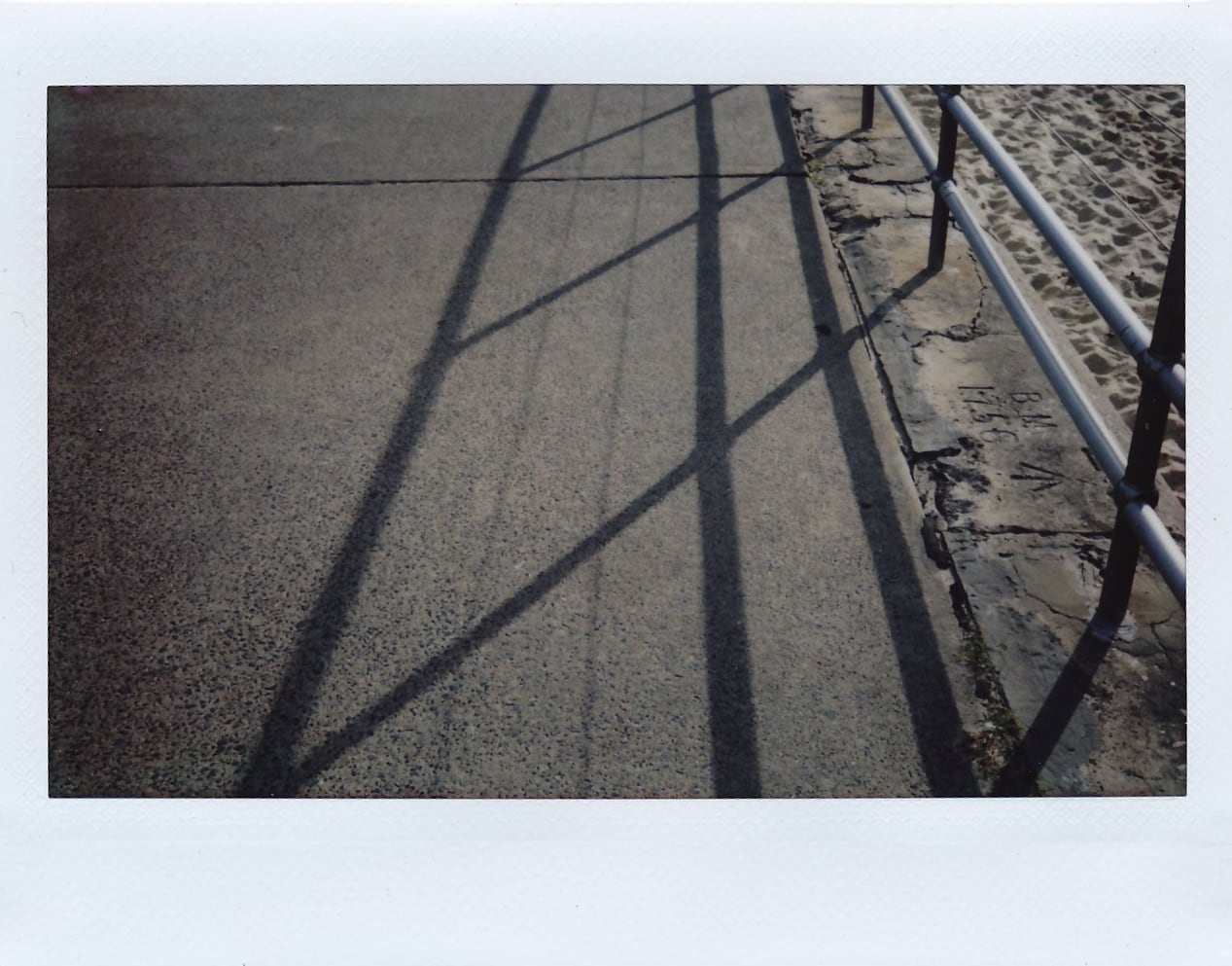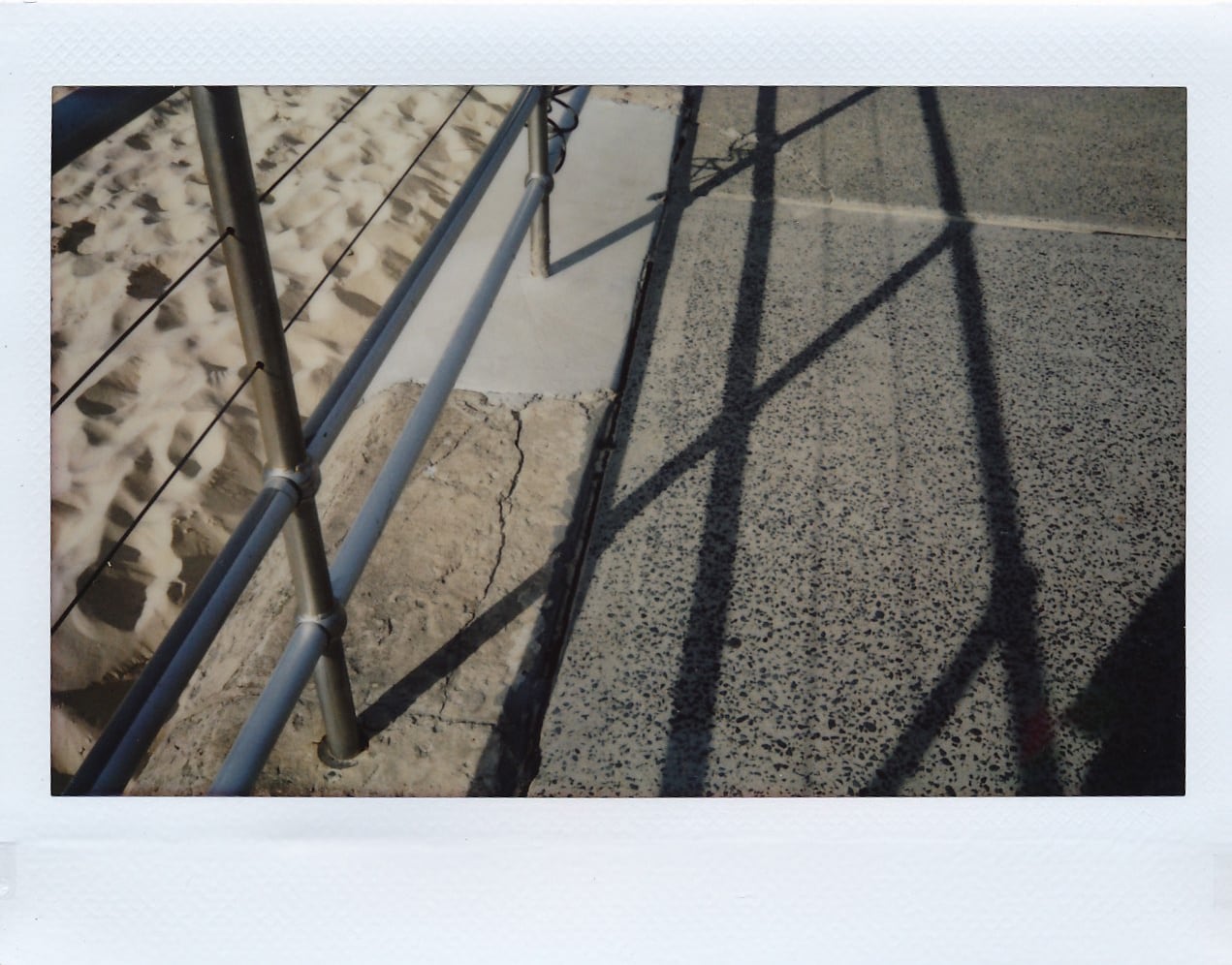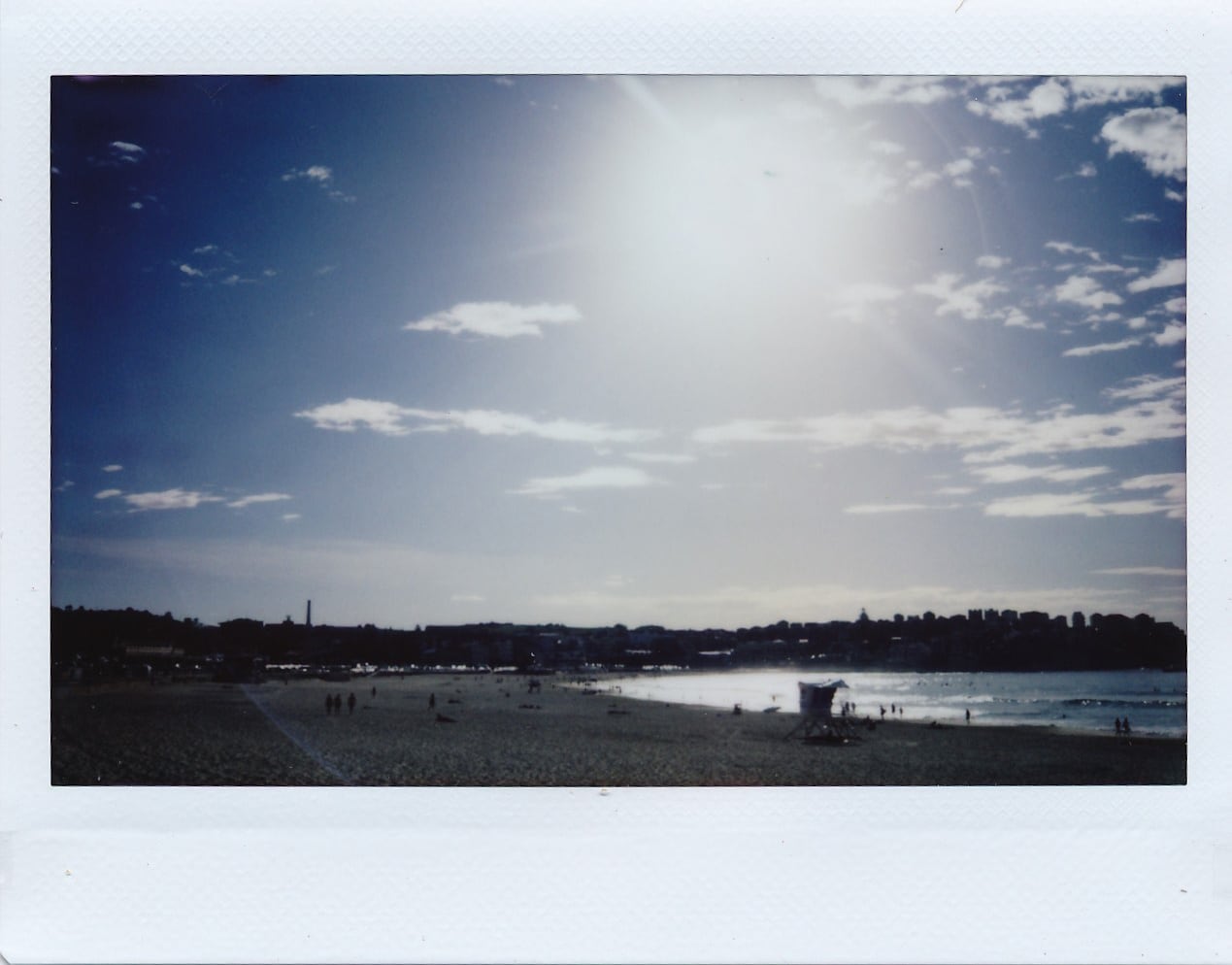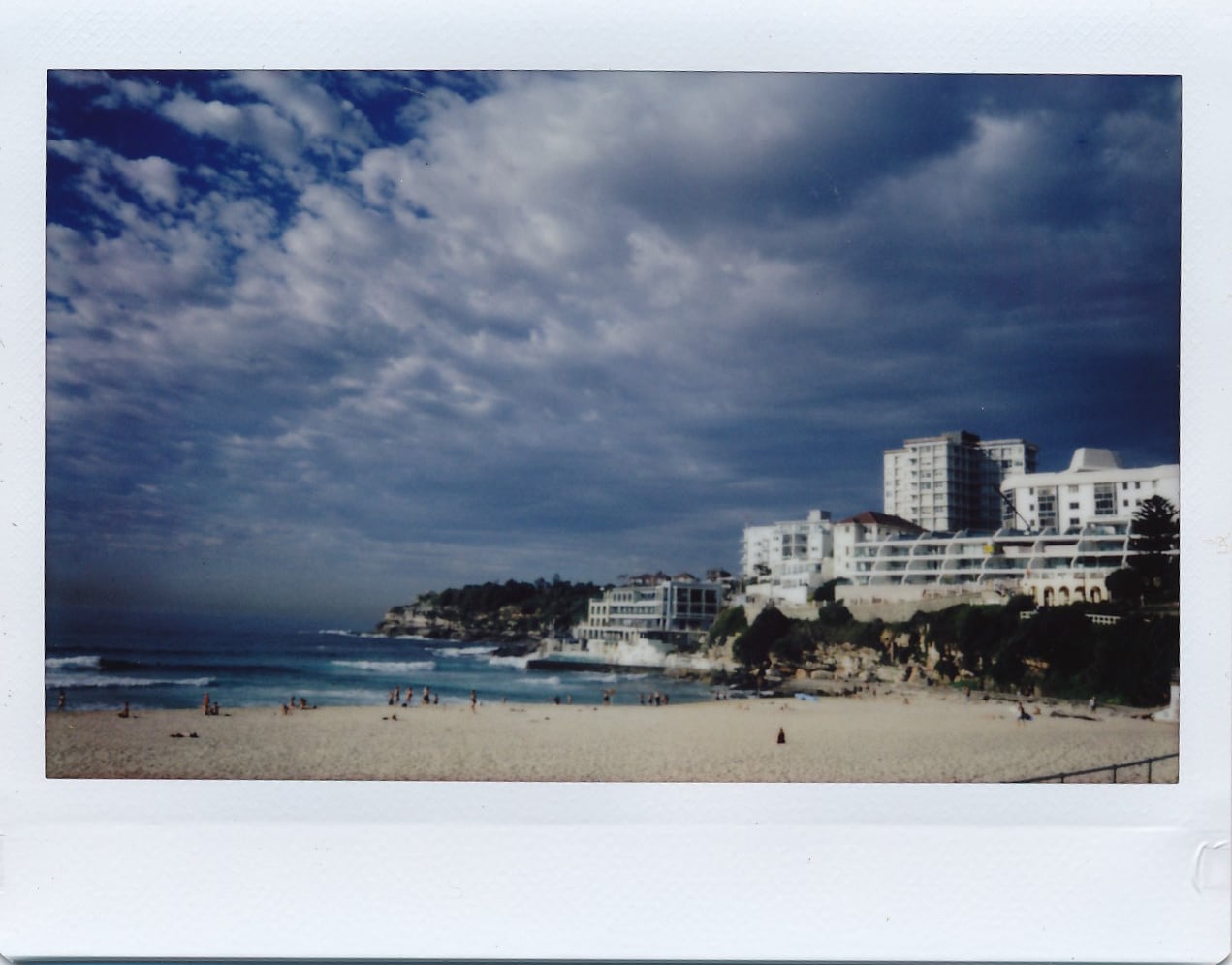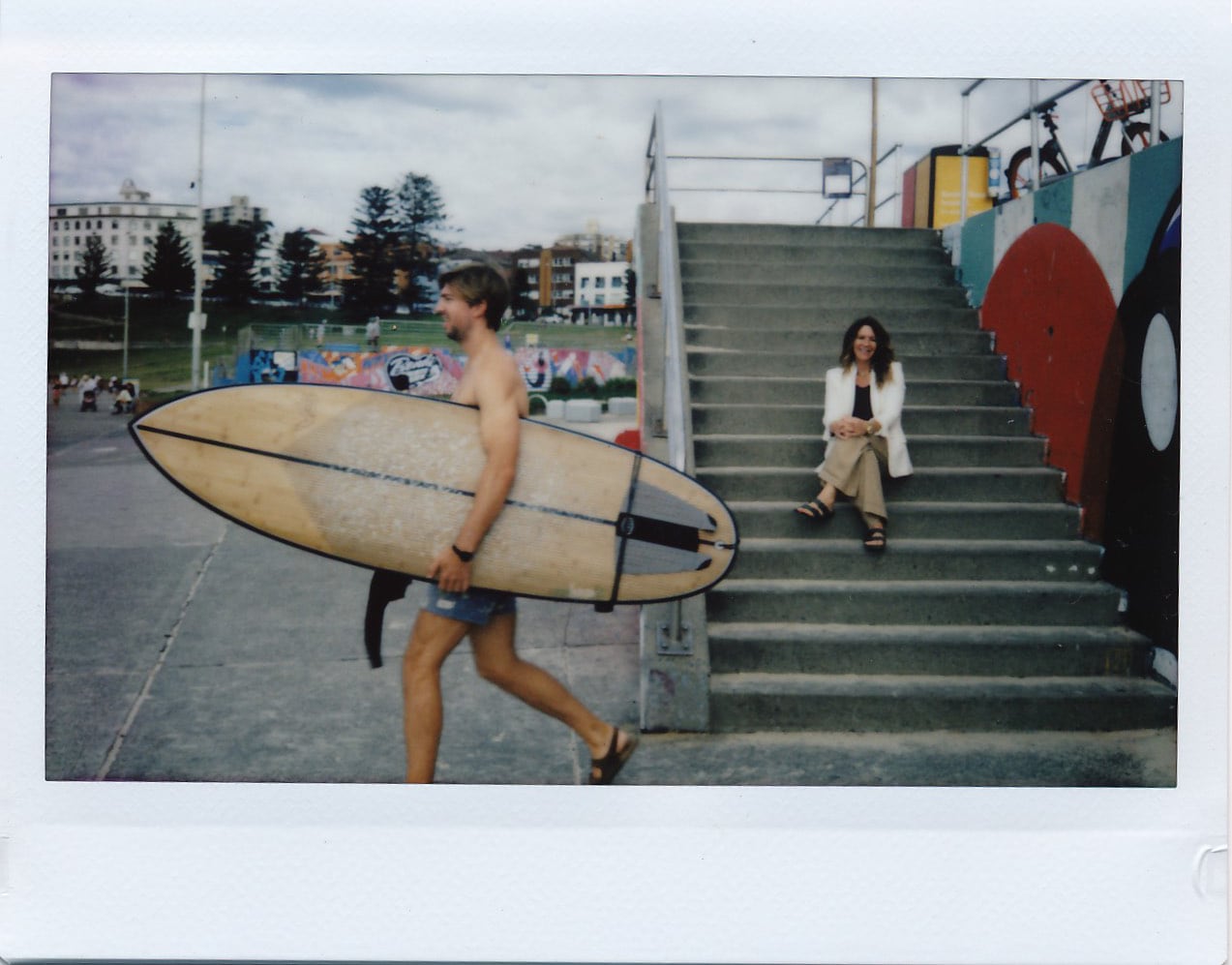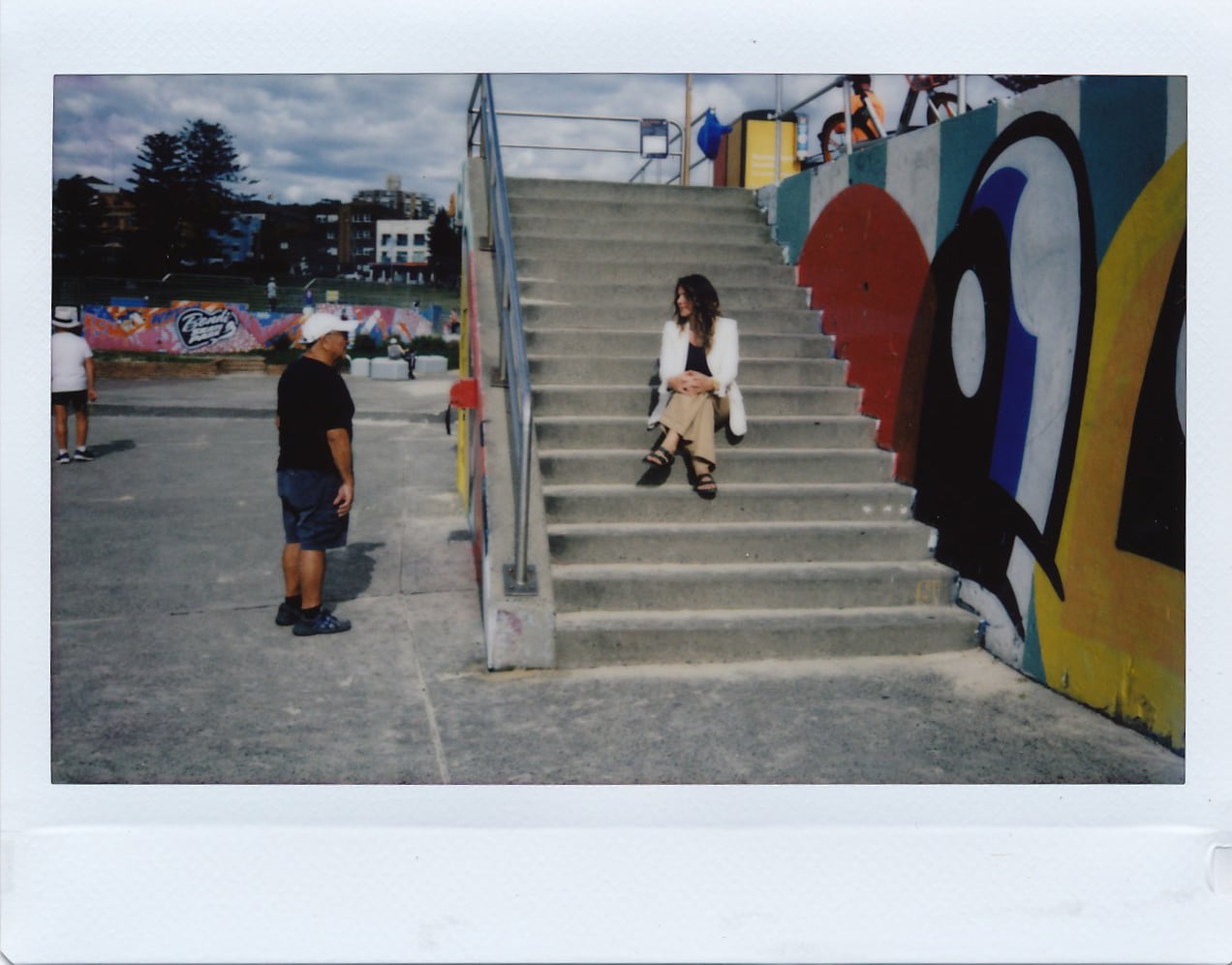Passion Project: Vashti Whitfield, Bondi

Text KATE PASCOE SQUIRES
Photography KATE PASCOE SQUIRES
Vashti Whitfield is, quite simply, magic. If you ask her what she does, she might answer “I work with the mind” – and doesn’t she just? Professionally, she is an executive and performance coach, transformational facilitator, teacher and international speaker – but her reality is so much more than that. She lives a life driven by her passion to provoke, inspire and develop human potential and I’m not sure I’ve even come across someone so wise, yet so candid.
Talk to me about your Slowdown. How does that idea resonate with you?
I’m not sure I can give you a short answer to this question. Perspective is everything to me and my favourite way of slowing down is to be high up in a plane, locked away from everyone and yet confined closely in with everyone on board. The height, the solitude, the surreal placement of being above the earth and the breath-taking cloudscapes quite literally not only slow my heart rate, but descale my mind from the clutter that may have been blocking it. Everyone and everything always feels crystal clear and in absolute slow flow thirty thousand feet high!
As someone who has always had an unusual amount of energy, physical strength and dogged determination, it has always been absolutely critical and yet often poorly managed as to how I harness my energy. As an ideas generator and a rule breaker, I can have a tendency to operate far too frequently in the creative space of my imagination – and therefore always be looking ahead to what is possible or what I would like to try, create, facilitate, teach, do, write etc. Which means that my mind is constantly going. I then of course, in my enthusiasm, also sweep up those around me on the ‘what if… and we could… and why don’t we?’ Vashti train, which then always eventuates in my having created yet more to do.
I could state the obvious and mention the necessity to see the sunrise every morning, to plunge into the ocean daily, to meditate regularly. To move your body regularly through exercise, yoga, intense workout sessions or some naked time with your special person. Or to take a Zen-like pleasure in what can become the obligatory routine of a solo parent, like cooking, cleaning my home and sitting trying to figure out the maths homework of my cubs – which, since they were about 6 years old, is far beyond my ability to fathom. Or simply sticking to a non-negotiable rule that I’m not allowed near my work phone or screen until 7.45am or after 6pm.
But really, for me to actually slow down only ever means one thing – and that is to BE in the purity of the moment, of what is actually taking place outside of the construct of my busy mind.

But really, for me to actually slow down only ever means one thing – and that is to BE in the purity of the moment.
You are a globally-acclaimed coach and speaker, resilience and mindset expert, documentary maker and author. Can you tell us a little about what set you on this path?
The short answer comes through my never-waning curiosity for exploring the human experience. Like a cat nosing a paper bag, I have always stuck mine in anywhere and everywhere. Whatever and wherever my curiosity for experiencing all of life has taken me.
However, over the last two decades, I have been hugely privileged to experience two of the most profound experiences that will forever shape who and how I choose to operate in the world. The first was birth, both physically and metaphorically, and the second being death. In order to bring life into the world, I had to replace thinking, determination and force, with the sole intention to surrender to being part of an experience and not the one driving it. The same still goes for solo parenting and how I choose to approach my role as more of a guide, than the double act of being both a mum and dad to my cubs.
With death, I clumsily learned to cross the rickety bridge between what was at first a threat, then becoming a full-blown reality. I learned that nothing – and I mean nothing – is more important, more powerful and more impactful than knowing how to isolate the clarity, the opportunity and the utter wisdom that any one moment can offer up.
I think I have probably answered that to some extent, however what I would also add is that I have always been absolutely fascinated by human beings from ALL walks of life. Growing up as a child travelling around the world gave me a curiosity, a hunger and, I guess, a desire to always seek to understand who, what and why someone is as they are. My overriding core value in life is LEARNING, whether I like it or not. And it has most definitely, at different times in my life, led my curious nose down many a path that I’ll write about in another book someday. However, when I met my late husband, I began to be more mindful of my actions and their impact. I began to see where and how my ability to deeply connect and facilitate others was, in fact, a process, skill and structure that was now being recognised as a hugely evolving industry sector called ‘coaching’.
At the same time, I was also observing my very shy husband battle with a desire to ride the Vashti train of ‘You can be or do anything you want in the world!’, while he unconsciously fought against himself to stay and play in the learned belief system – of two adoring, but then risk adverse, parents.
My focus was love and the utter relentless pursuit of how to inspire the potential I not only saw in my beautiful husband, but in all the people I coached and facilitated. I became ravenous to understand all aspects of the human experience – the why’s of how we think, fear, act and behave as we do in day to day life. And as luck would have it, Neuroscience, Emotional Intelligence, Modern, Organisational and Positive Psychology and CBT were suddenly becoming accepted and welcomed as very acceptable modalities for professional development. I had finally found my absolute calling, purpose and focus. With just the right blend of Conscious, Science, and Spiritual-based thinking.
Then throw in a few other extraordinary chapters – from living the dream of a Hollywood moment right through to choosing whether or not your husband would rather be cremated wearing underpants or not. It was as if all of sudden, the Universe had decided I needed to experience the ultimate deal breaker of the human experience, which was loss at the deepest level. Which is where I then began my next chapter of study and where grief, loss, dying and the importance of legacy became the new set of friends that, it turns out, I had very much needed to help me understand the meaning of both life and death. We made the documentary as a vehicle to bring purpose, meaning and learning to an experience that is usually hidden away and shared only with those going through their own experience of it. I never realised that I would use our Legacy Project as a tool to facilitate human transformation. A bizarre, but wonderful paradigm – that out of death, so much life can be lived.
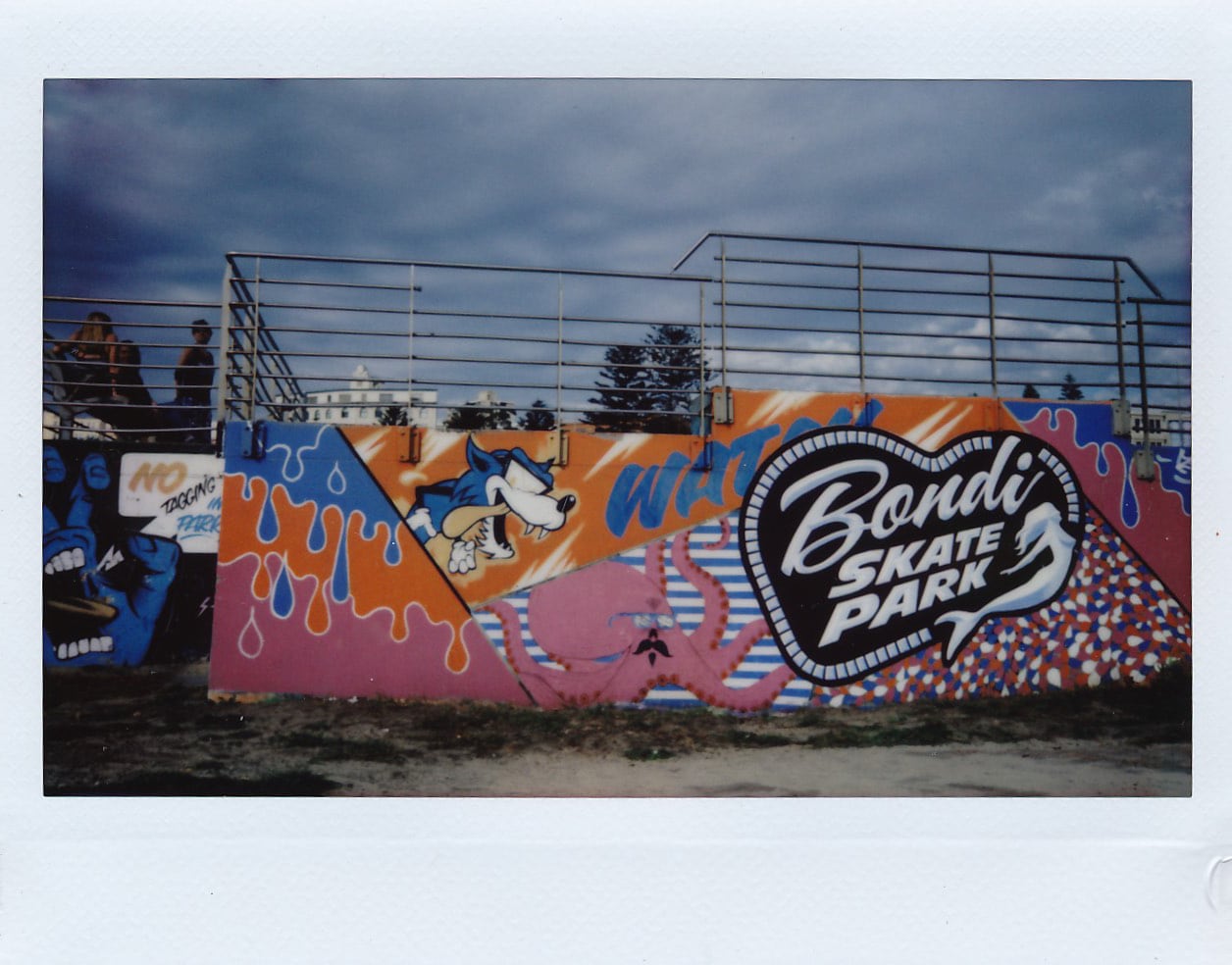
You are a mother of two beautiful children, Jesse and Indigo. Do you think we can teach our children the joy of slow and, if so, how do you impart this knowledge onto your cubs?
I think it is absolutely critical – more so than ever before, that we not only teach our young the concept of SLOW, but also to explain and teach the reasoning, mindset and skill set required behind it. They are growing up with a societal value system that is so heavily anchored in the belief that being ‘busy’ is a good thing and that what you do defines who you are. Along with the FOMO youth culture who are constantly watching the lives of others, it is essential that we educate, model and petition for this to be a basic part of our children’s education.
I guess my way of teaching my cubs is through modelling and often discussing all aspects of life. I very rarely isolate one stage of life without bringing into the conversation some form of reflection, so as to always highlight the value, the importance, of ALL aspects of life. There is SO MUCH evidence now to prove that overworking, overthinking and under prioritising time out and away completely and utterly detracts from our capacity and capability to be innately resilient and to achieve, succeed and be our unique potential. I am always, often to the horror of other parents, encouraging my cubs to go be in the ocean, garden or at the skate park, rather than cramming in more study. Not that I am saying that that is the right way, however I do passionately believe teaching, allowing and encouraging our kids to find their version of SLOW – the one that allows them to slow down their thinking, be in the moment of their life and not the one we fear they will or won’t have – is absolutely a critical piece of teaching now required.
And lastly, I think there is a lot to be said for teaching our dopamine addicted kids the experience of what it is like to be bored. Going somewhere with no wifi, or simply switching it off or faking that it’s mysteriously gone down for a few days, does, after the initial moaning and suffering, usually turn into hilarious games of Scrabble, cooking together and hanging out old school style.
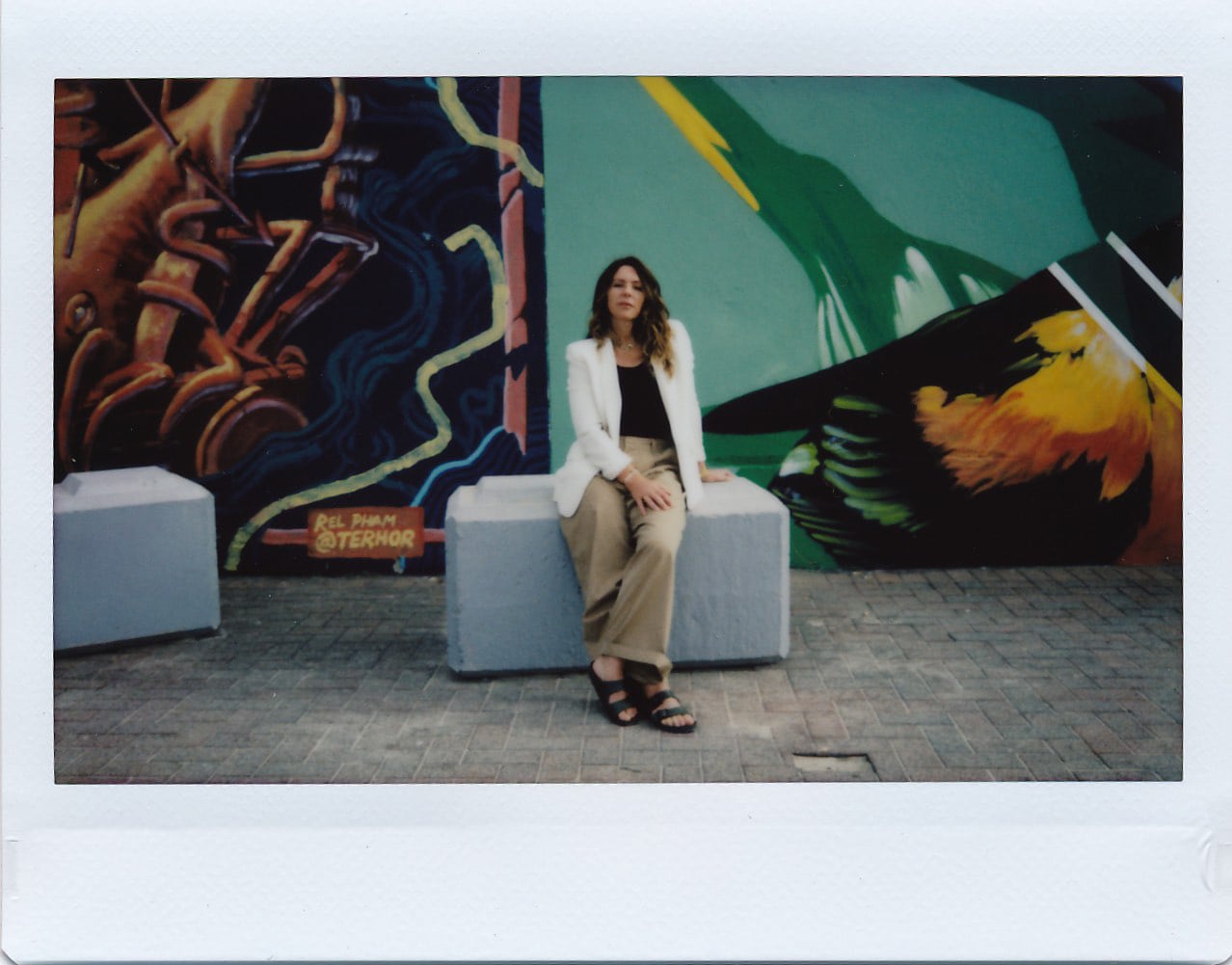
Everything, and I mean everything… all of it happens for you and not to you.
The ‘Be Here Now’ documentary was just extraordinary, tracing the journey of your husband’s (actor Andy Whitfield) devastating non-Hodgkin’s Lymphoma diagnosis. Through all the sadness, there are some incredibly inspiring messages in this film – one of my favourites being “I don’t see how you can’t turn something like this into something wonderful… because what else is there to do?” This is honestly so powerful. Can you share with us what gave you the strength and insight to think this way?
It’s interesting, whilst the vast majority of my husband’s fans have taken so much value from my philosophical stand point on loss, there are a good few who have trolled me, with a deep hatred for how I could even utter any sense of gratitude for what death and loss have gifted and enabled in both our cubs and my life.
There are many ways you could look at my attitude; from a psychological perspective – one of the non-linear stages of grief is to cultivate purpose and meaning from your loss. Combined with my passion to lean into all corners of the human experience and my unwavering desire to try to understand the psychological, emotional and even neurological process taking place, it kind of makes perfect sense that I would walk straight into the fire, instead of choosing to walk around it.
But if I break it down to the only fundamental driver behind my perspective, it simply boils down to one very simple belief. Everything, and I mean everything, even if at the time it seems utterly inexplicable, and even if you are forever more living with the constant ache of pain of loss, all of it happens for you and not to you – an opportunity to grow, to give back and to experience all that you were supposed to give and get from your time here.
They are growing up with a societal value system that is so heavily anchored in the belief that being ‘busy’ is a good thing…
I’ve heard you say about life “You get what you get, so make the most of it” – is this something you honour every day or do you have times when you fall in a heap?
I think it’s important to hear that statement in two parts. Firstly, yes absolutely, we are often dealt cards that were not part of our grand plan and when that happens, we can either fight it or we can we actively choose – however hard it might feel, to instead lean into what the situation is actually offering up. Baring in mind that, whilst we might be embracing the unexpected, we must still always allow our self the time and space and/or structure to also grieve what or who it is that we have had to or are slowly having to let go of.
The second part however, is about the responsibility we may need to take when we have, in fact, helped to create or manifest the situation. For example, if I continue to find myself in a situation that is incredibly challenging and/or completely misaligned with who or how I want to be operating my life, personally or professionally, well then it is without doubt, time to inspect a little more deeply what it is that I keep hitting repeat on, that has brought me to this situation. And without stating the obvious, part two in no way relates to another person’s death.
More than fall in a heap, I can sometimes have the tendency to de-prioritise certain structures that are absolutely necessary for my ability to be resilient, clear and adaptable.
For those of us who are walking our own slow down path and searching for strength to deal with whatever it is we have to deal with, do you have any ideas to share that might assist us in our journey?
Life is a constant sequence of loss and gain. We cannot have one without the other. Once you accept this, instead of fighting, kicking and screaming, or resisting the loss part, you can then become far more open to exploring the gain part – with a whole new perspective.
In order to grow from our situation, our challenge or the complexities we are facing, we have to be willing to acknowledge that grief and growth are a necessary and crucial part of moving forward. Be it a stage in our life, a business, a partner, a pet or the young skin we once gazed upon, we have to allow ourselves the chance to acknowledge the feelings and the fear that can come with letting go.
If you can embrace that everything happens FOR you and let go of the belief that it is happening to you, while allowing yourself the time and space to grieve what feels lost, you can then, and only then, begin to lean into what is actually presenting itself as the opportunity, waiting for you to dive right in.
You can find Vashti at @vashtiwhitfield (her videos are some of the best on Instagram) or visit www.vashti-whitfield.com.
Fin.










